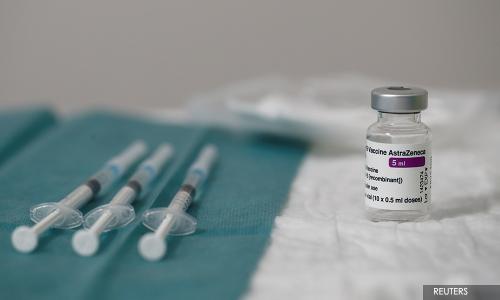LETTER | Immunisation programme should ensure equitable access
LETTER | The National Covid-19 Immunisation Programme (NIP) that began rolling out on Feb 24 will be expanded and speeded up, according to a government announcement on March 8. The government said that this will be achieved by involving general practitioners (GP) in the private sector to assist in the Phase 2 vaccinations. A clarification was made on March 15 that the vaccinations will be free of charge, as the government will provide the vaccines and also an appropriate amount to cover the cost incurred by the private facility.
People’s Health Forum welcomes this move, in particular, the effort to call on the widespread private GP clinics in the country. According to Health Facts 2020 there are currently 2,885 government clinics (1,114 Klinik Kesihatan and 1,771 Klinik Desa). In addition, there are 7,988 private clinics, most of which are small GP practices that are well distributed and easily accessible to urban populations, and so this will speed up the vaccination rollout greatly.
We also note that there have been calls for the government to allow private healthcare providers to procure their own vaccines and operate a separate and parallel vaccination programme. These vaccinations will presumably be paid for by those who choose to go there because they want to jump the queue rather than wait for their turn under the government NIP programme.
While the government has expressed some willingness to allow this, we would like to sound a note of caution. In a situation of global vaccine shortage as we are facing now, a parallel private sector vaccination rollout is highly inequitable, potentially resulting in those who should be prioritised (the frontliners, elderly, patients with underlying conditions) not getting the vaccines earlier, as those who can afford it, jump the queue in the private sector.
There are also other issues besides the issues of equity and medical need. In India, governmental price control has been made a condition for private sector vaccine rollouts. Since March 1, in addition to free access in Indian government vaccination centres, eligible individuals will have the option to be vaccinated in private centres for a maximum fee of Rs 250 (about RM14) per dose, of which Rs 150 (about RM8.50) is the negotiated vaccine price.
While this can speed up vaccination of those at risk, public health experts have also called on the Indian government to put in place checks to ensure compliance with screening procedures, vaccination protocols and proper monitoring of adverse effects following immunisation.
In Indonesia, an “independent vaccination” programme was approved in February to supplement the government-run national Covid-19 vaccination programme following pressure from the Indonesian Chamber of Commerce and Industry. Business entities can register to buy vaccines for their staff and their families.
However, there are conditions attached to this scheme. First, the vaccines have to be procured by Bio Farma (state-owned vaccine manufacturer/importer) to ensure quality and safety.
Secondly, the vaccines for the private vaccination programme must be different from the type of vaccines used in the government’s programme to avoid any undermining of the supplies for the public programme since there are serious shortages.
While this is expected to speed up the speed of inoculation in the country, it has also triggered concerns that it could worsen inequity because the authorisation does not require participating business entities to cover all their workers. So, a company may include only some categories of employees, leaving uncertainties over temporary or outsourced workers and their families.
In any event, we should be aware that the continuing global shortage of Covid-19 vaccines is of widespread concern and will be a deciding factor for any national vaccination programme to achieve its timeline.
Therefore, any involvement of the private sector must ensure equitable access to vaccination for the population.
The People's Health Forum (PHF) is committed to universal healthcare as an entitlement based on the basis of need.
The views expressed here are those of the author/contributor and do not necessarily represent the views of Malaysiakini.
RM12.50 / month
- Unlimited access to award-winning journalism
- Comment and share your opinions on all our articles
- Gift interesting stories to your friends
- Tax deductable
